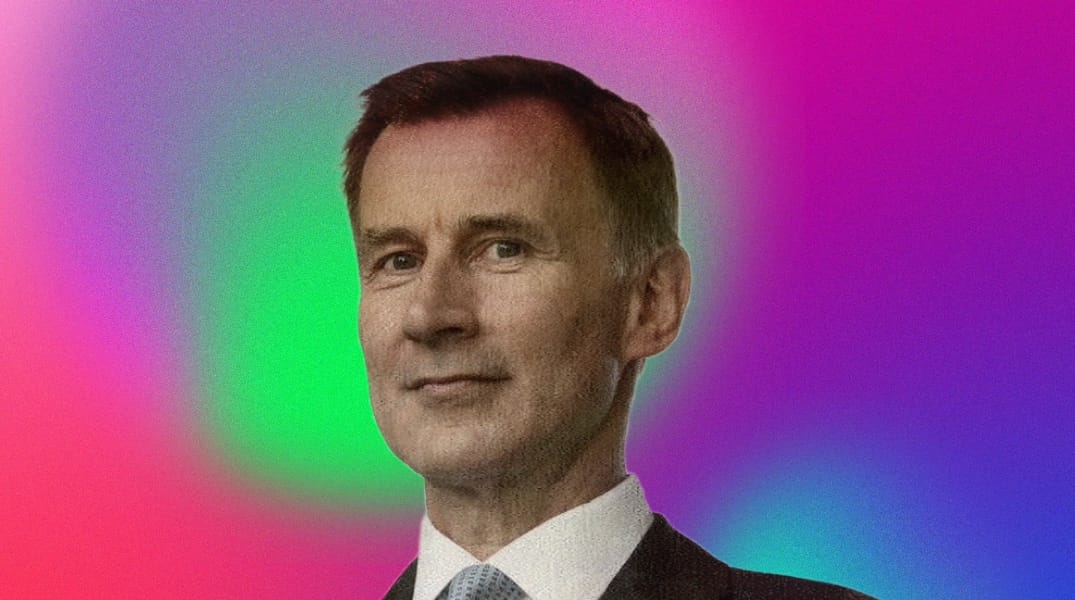By Naked Politics Team
The government has announced a new budget statement, billed as a “budget for growth”, which sets out the major economic changes the government will roll out this year. The budget comes amid a day of strikes from workers in the civil service, Transport for London and junior doctors just to name a few. It’s a budget that is emphasising “getting back to work” as its main priority.
Last Autumn Jeremy Hunt, the government minister in charge of the country’s finances announced some minimal changes to help with the cost of living, but renters, people on low wages and those reliant on public services like the NHS, state schools and benefits saw little to no help. Chances are if you’re a young person, you’ll have definitely noticed the rise in prices, and your wages are probably buying you less than even a couple of years ago.
With the economic landscape looking bleak, here’s our round up of what impact this new budget is likely to have.

Support us!
Support us by contributing as little as £1 so we can continue to give young people a voice and a platform they deserve.
£1.00
Energy prices
If you’re paying energy bills, you’ll probably have noticed the price rocketing. The “Energy Price Guarantee” puts a cap on how much you can be charged for energy (£2,500, although if you use enough energy you can be charged more) and households were being given assistance with their energy bills. This scheme was due to be ended after March, but is going to be extended by another three months.
The cap is still higher than three years ago (when it was £1,500) and means in a few months time the support on energy bills could be gone.
Work and benefits
The government will fund a new programme called “universal support” in England and Wales, which could impact up to 50,000 people per year. There will also be £400 million for mental health and muscular skeletal support, and a £3 million fund to help people with special needs transition into the workplace.
Changes to universal credit (the benefits allowance for those not in work) were announced, sanctions reforms aimed at getting people the government thinks can be at work, back in employment. Financial expert Martin Lewis, who has recently been very vocal about the economic harm facing British people tweeted in response “2 million job seekers will have more rigorous sanctions- if they don’t take appropriate work. So it’s going to be tougher for people who don’t work and who the government thinks can”. According to the Joseph Rowntree Foundation universal credit claimants will be “£140 short of the money needed to afford the essentials of each month”.
As part of getting people “back to work” 30 hours free childcare has been extended to children as young as 9 months old. Will Snell, chief executive of the Fairness Foundation told Naked Politics in response “if Jeremy Hunt really wants to get Britain back to work again, he needs to ensure that investment in the early years sector translates into better pay (and not just a one-off payment). Staff in the sector are underpaid and undervalued, and this has led to a recruitment and retention crisis. Parents recognise that this reduces the quality of childcare and pre-school education, and they want change.” The support is also not universal; your income according to age will be taken into account to determine if you are eligible.
There has been no commitment to a substantial pay rise for public sector workers, many of whom are on strike during the budget announcement over pay.
Housing
Despite rents skyrocketing, and mortgage payments increasing for some, the government announced no new significant policies around housing. Average rents across the UK were up 10.8% annually in December 2022. These increases mean a single tenant on average now faces paying 35% of their income on rent according to MoneyWeek, reportedly “the highest level of rental unaffordability in over a decade”.
Taxes
Corporation tax is still being put up to 25% but every pound invested in IT equipment, plant, or machinery can be deducted immediately from profits of a business. Only 10% of businesses will pay the full 25% rate.
Many have argued that energy companies making huge profits and giant corporations like Google or Starbucks need to be paying far more in tax and that a low tax economy for big business won’t enrich everyone.
Climate change
The government will co-fund companies developing small nuclear reactors, and will also classify nuclear power as ‘green energy’. According to Greenpeace, this could give it access to the same investment as renewable sources, despite renewable energy being quicker to support and there not being a solution for dealing with nuclear waste in the U.K.
The government will also support carbon capture technology (the process of trapping carbon dioxide produced by burning fossil fuels or other chemical or biological processes and storing it in such a way that it is unable to affect the atmosphere) providing £20 billion. Greenpeace has said that “carbon capture is not a zero carbon solution when it requires fossil fuels to be produced because of so-called ‘upstream’ emissions, so it’ll be extra hard to get to net zero emissions using it”. Nearly 60% of young people between 16 and 25 recently surveyed said they felt very worried or extremely worried by climate change and it’s likely many young people will feel we are still falling short of what’s needed to tackle climate change.
Thanks for reading our article! We know young people’s opinions matter and really appreciate everyone who reads us.
Give us a follow on Instagram, Twitter and Facebook to stay up to date with what young people think.

